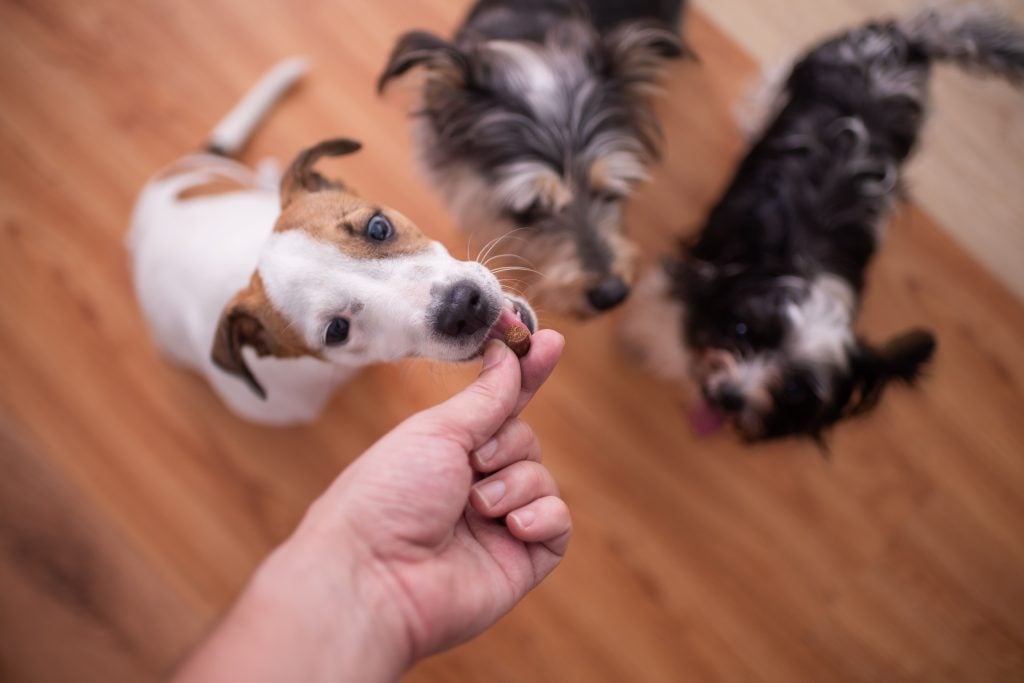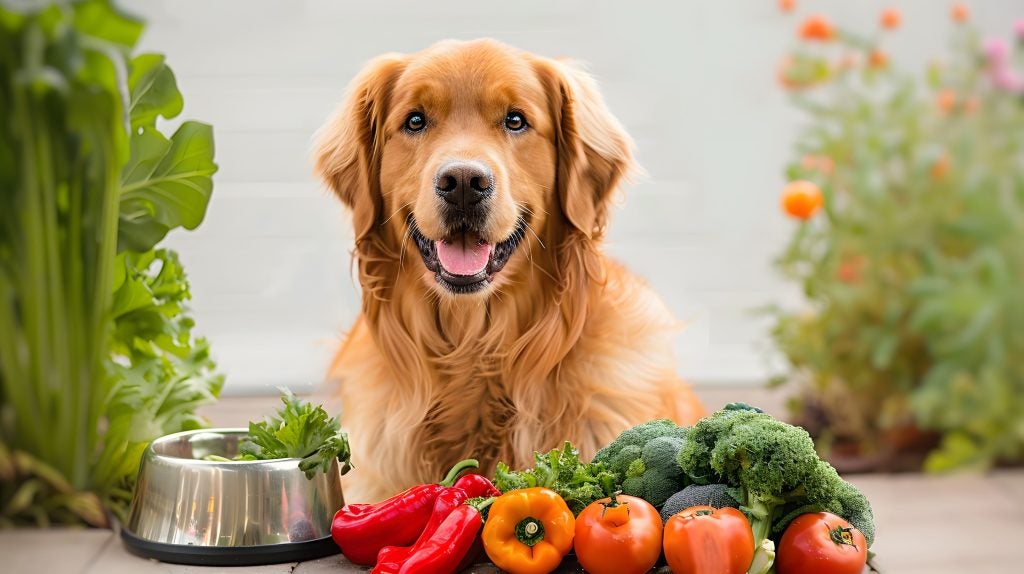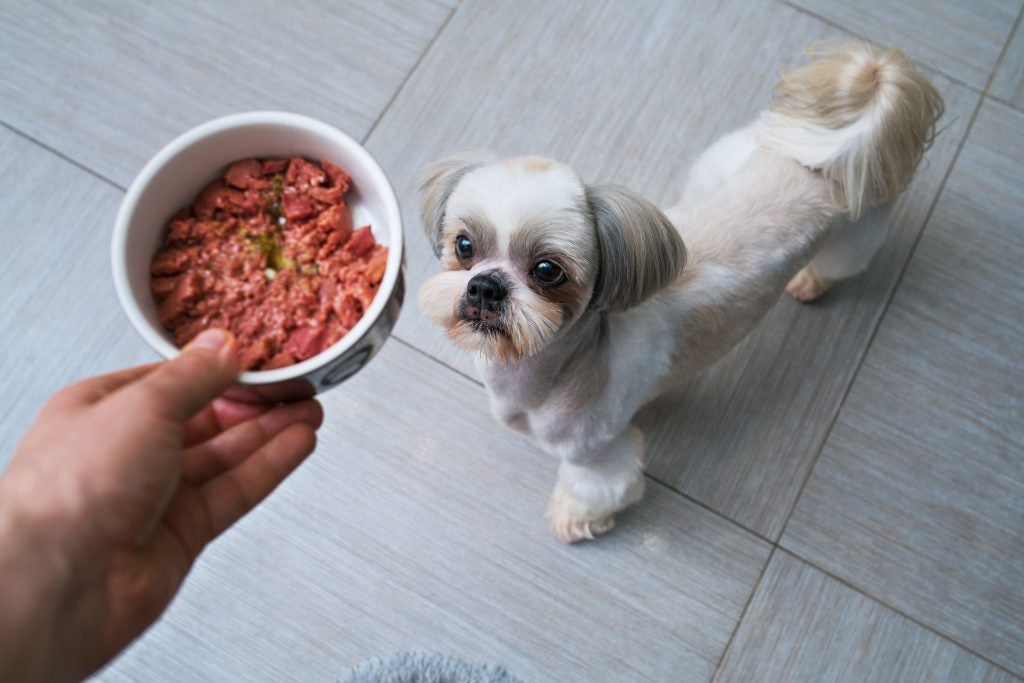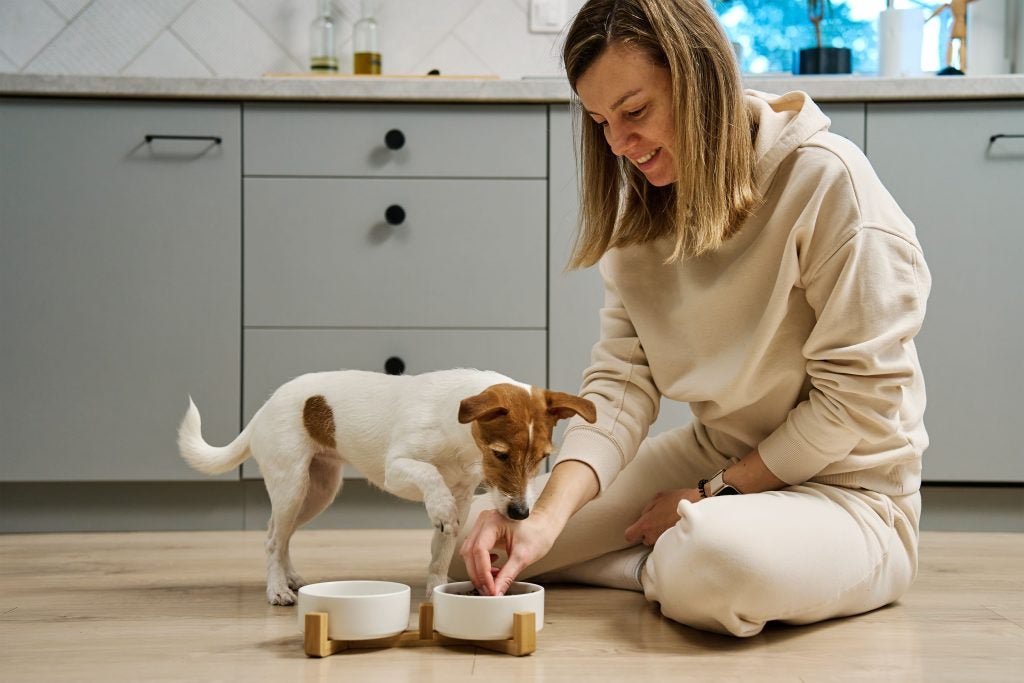What Can My Dog Eat? Homemade Meals for Dogs: Advice and Recipes

As devoted pet parents, we all want the best for our furry companions. The rising trend of homemade dog food reflects a heartfelt desire to ensure our dogs eat healthy, nutritious meals crafted with love. After all, what could be more satisfying than watching their tails wag with excitement as they enjoy a dish made just for them? Cooking for your pets not only allows you to control the ingredients but also gives you the joy of providing meals that cater to their individual tastes and dietary needs. In this blog, we’ll explore the ins and outs of cooking for your beloved pooch, from understanding their nutritional requirements to whipping up delicious treats that will have them begging for more!
Understanding Your Pet's Nutritional Needs
Before diving into the world of homemade dog food, it’s essential to understand what our furry friends need to thrive. Dogs, just like humans, require a balanced diet to maintain their health and energy levels. In fact, they need a combination of 37 essential nutrients to keep their tails wagging and their spirits high. This includes proteins, fats, carbohydrates, vitamins, and minerals, each playing a crucial role in their overall well-being.
While the idea of cooking for your dog is undeniably appealing, it’s vital to remember that creating a truly balanced diet at home can be quite challenging. Many recipes found online, even those written by well-meaning pet lovers, often fall short of providing the necessary nutrients. This can lead to serious health issues over time. It’s not uncommon for pet parents to unknowingly make mistakes when attempting to balance their dog’s diet, so it’s crucial to approach this with care and compassion.
To ensure that your pup gets the nourishment they need, consider consulting a veterinary nutritionist who can guide you in creating a well-rounded meal plan. By taking these steps, you’ll be setting the foundation for a happy, healthy life for your beloved canine companion. After all, they deserve nothing less than the very best!

Cooking for Dogs
Benefits of Homemade Dog Food
Cooking for your furry friend can be a truly rewarding experience! Many pet owners have found that making homemade dog food allows them to control what goes into their beloved companion's meals. For those dogs who can be a bit fussy, a warm, freshly cooked meal can be far more enticing than a bag of kibble. Imagine the joy on your dog's face when they discover something new and delicious waiting in their bowl! Plus, preparing meals at home gives you the chance to use high-quality, wholesome ingredients, ensuring that your pup gets the best possible nutrition.
Risks of Homemade Dog Food
However, it's essential to approach homemade dog food with care. Dogs require a specific balance of nutrients—there are 37 essential nutrients that help keep them healthy and happy. Crafting a diet that meets all these needs can be quite challenging, and many online recipes may not provide the complete balance your dog requires. It’s also important to be mindful of portion sizes; when your dog enjoys home-cooked meals, they might be tempted to overindulge, which can lead to weight gain. We want our furry friends to thrive, so let’s make sure we’re giving them the right food in the right amounts.
Feeding Your Dog Safely
One practical way to include homemade food in your dog’s diet is to follow the Ten Percent Rule. This means that 90% of their meals should come from a complete and balanced diet—like high-quality kibble or canned food—while 10% can be delicious home-cooked treats. This approach ensures that your dog enjoys the benefits of homemade meals without the risks of an unbalanced diet. If you’re ever unsure, consulting with a veterinary nutritionist can help you tailor a plan that meets your dog's specific needs. After all, we want to give our furry companions the best care possible!

Homemade Dog Treat Recipes
Quick Overview of Dog Treats
Who doesn’t love spoiling their dog with a tasty treat? Making homemade dog treats is a wonderful way to show your love and affection. Plus, it's a chance to ensure that your pup is munching on wholesome, safe ingredients. You can create delightful snacks that are not only delicious but also healthy for your furry friend.
Recipes
Feel free to experiment with the recipes! You can add your dog’s favourite flavours or adjust ingredients based on what you have at home. Just remember to keep the ingredients safe and healthy. Your pup deserves all the love and care you can give, and these homemade treats are a delightful way to show it!

Ingredients to Use in Homemade Dog Food
When it comes to preparing delicious meals for your furry friend, choosing the right ingredients is essential for their health and happiness. Let’s dive into some dog-safe options that can make their meals both nutritious and tasty!
Safe Meats
Protein is a vital part of your dog’s diet, and there are plenty of tasty options to choose from: - De-boned Muscle Meat: Chicken, lamb, beef, or salmon are all fantastic choices that many dogs love. Always ensure the meat is cooked thoroughly to keep your pup safe. - Organ Meat: While these are rich in nutrients, they should be given as occasional treats. Options like kidney, liver, or tripe are packed with goodness but can be high in fat and certain vitamins that could be harmful in large amounts.
Vegetables
Adding veggies to your dog’s meals is a wonderful way to introduce more variety and nutrients. Most dogs enjoy these, whether cooked or raw: - Carrots: Crunchy and sweet, perfect for snacking! - Sweet Potatoes: A great source of vitamins and fibre, these can be cooked and mashed or diced. - Green Beans: Low in calories and full of vitamins, they make a lovely addition to any meal. - Peas: Tiny but mighty, they’re full of protein and good for your pup’s overall health. - Cucumber: Refreshing and hydrating, this is a great crunchy treat, especially on warm days.
When preparing vegetables, cut them into small, manageable pieces to avoid any choking hazards, especially for those eager eaters!
Sauces and Moisture Additions
Sometimes, our dogs need a little extra flavour in their food. However, be cautious about what you add: - Homemade Stock: A low-salt broth can enhance the taste without the harmful additives found in commercial sauces. Just make sure it doesn’t contain onion or garlic, as these can be toxic to dogs. - Warm Water: A simple splash of warm water can help blend the flavours and soften dry food.
By selecting the right ingredients, you’re not just cooking; you’re crafting nourishing meals that show your beloved pup just how much you care!

Transitioning to Homemade Food
Making the switch to homemade meals can be an exciting journey for both you and your dog! Here are some gentle tips to ensure the transition goes smoothly and is as enjoyable as possible.
Start Slowly
Just like we appreciate a gradual change in our diet, our furry friends benefit from a slow introduction to new foods. Start by mixing a small amount of your homemade food with their regular kibble. Gradually increase the proportion of homemade food over several days. This will help your dog adjust and prevent any tummy troubles.
Watch for Signs of Adaptation
Every dog is unique, and some may take to homemade meals more readily than others. Keep an eye on their behaviour and digestion. Are they excited about mealtime? Is their digestion normal? Look for signs of discomfort, like an upset stomach or changes in their stool, and adjust the recipe as needed.
Encourage Positive Associations
Make mealtime a delightful experience! Use cheerful tones and gentle encouragement to create a positive atmosphere around feeding time. Your dog will look forward to these home-cooked meals if they associate them with love and affection.
Consult Your Vet
If you have any concerns or if your dog has specific dietary needs, don’t hesitate to consult your veterinarian. They can offer tailored advice and ensure your homemade meals provide the nutrition your pup needs to thrive.

Conclusion
Cooking for your dog is a heartfelt way to show your love and commitment to their well-being. By preparing homemade meals and treats, you can ensure that your furry friend enjoys fresh, nutritious food that caters to their tastes and dietary needs. Remember, while homemade food can be a delightful addition to their diet, balance is key. Always be mindful of the ingredients you choose and consult with a veterinary professional if you have any concerns about their nutrition. With a little care and creativity, you can make mealtime a special occasion that strengthens the bond between you and your beloved pup!
FAQs
Is homemade dog food better for my dog? While many pet owners feel that homemade food offers more control over what their dogs eat, there isn’t strong evidence to suggest it’s nutritionally superior to high-quality commercial dog food. The key is to ensure that any homemade meals are balanced and meet your dog’s nutritional needs.
Can I cook for my dog every day? Yes, but it’s essential to maintain a balanced diet. If you choose to prepare homemade meals daily, consider incorporating a portion of high-quality commercial food to ensure all essential nutrients are included.
How do I know if I’m feeding my dog a balanced diet? Creating a complete and balanced diet for your dog can be challenging. It’s best to consult a board-certified veterinary nutritionist who can help formulate a diet tailored to your dog's specific needs.
Are there any foods I should avoid? Yes! Certain foods can be toxic to dogs, including chocolate, onions, garlic, grapes, and raisins. Always research any new ingredients you plan to introduce and consult your veterinarian if you’re unsure.
How can I tell if my dog likes the homemade food? A happy dog will show excitement at mealtime! Signs of enjoyment include wagging tails, eager behaviour, and finishing their meals without hesitation. If they seem hesitant, it might be worth adjusting the recipe or trying different ingredients.
By keeping these questions in mind, you can confidently navigate the world of homemade dog food and create delicious meals that keep your furry friend healthy and happy!








